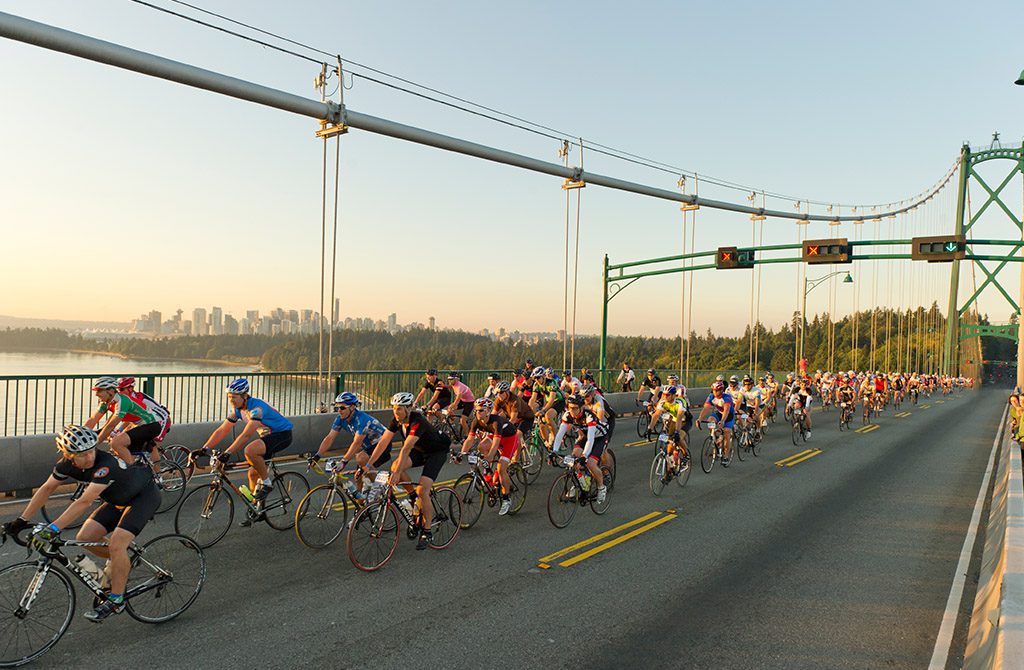What B.C.’s indefinite ban on gatherings larger than 50 people means for the cycling community
Events such as RBC Gran Fondo Whistler fall under the fourth phase of the province's long-term plan

Starting May 14, British Columbia will begin restarting economic activity, opening provincial parks and resuming elective surgeries and regulated health services. It’s all part of phase two of B.C.’s plan to restart the province. Phase three will include opening up of additional businesses and services between June and September 2020, if transmission rates remain low or in decline.
Phase four includes the re-opening of clubs and bars, conventions, international tourism and other gatherings above 50 people. It will only come into action, “when the threat of COVID-19 has been significantly diminished through widespread vaccination, broad successful treatments, evidence of community immunity, or the equivalent.”
“Until these things happen,” said Premier John Horgan, “B.C. will not be hosting rock concerts and conventions, or any other large gatherings beyond 50 people.”
Vaccination, treatments or community immunity
There is no way of knowing how long it will take for researchers to develop a vaccine. Including research, development, testing and trails, vaccines normally take years to decades to develop. With the world’s scientific community focusing on the project, some experts have projected a vaccine will be available mid-2021 but there is no way of knowing for sure.
Community or herd immunity is a form of indirect protection from infectious disease that occurs when a large percentage of a population has become immune to an infection. This could happen from widespread vaccination, but it can also occur if enough people build up an immune response to the virus from contracting the virus itself. The latter form of community immunity would be completely catastrophic, would require at least 70 per cent of the B.C. population to have contracted the virus and would result in hundreds of thousands of deaths. In the (hopefully) unlikely case that this happens, the province would move to phase four of the re-opening plan.
Essentially, as long as there is no vaccine, big gatherings will not be happening in B.C. until at least next year, maybe even longer.
What this means for cyclists in B.C.
B.C. is home to some of Canadian cycling’s biggest events. These include the nine-day BC Superweek road racing series, Whistler’s iconic Crankworx festival, as well as large grand fondos like the RBC Gran Fondo Whistler and the Prospera Granfondo Axel Merckx Okanagan that each attracts thousands of riders every year. Victoria, B.C. is scheduled to host Canadian cyclocross championships in late fall.
BC Superweek and Prospera Granfondo have both been cancelled for 2020 already. Crankworx Whistler has cancelled the Enduro World Series event but is waiting for full government guidelines before making a final announcement. RBC Gran Fondo Whistler, which is also the host event for 2020 UCI gran fondo world championships, is still scheduled for Sept. 12, 2020.
While major cycling events far exceed the provincial government’s 50 person limit, there is still hope for B.C.’s cyclists. Part of the first phase of re-opening includes the return of recreational sports leagues. Details of what sports will be allowed to resume have not yet been released, but outdoor sports have been deemed safer. This could see some form of cycling resume in the province soon, though it remains to be determined what that will look like.
